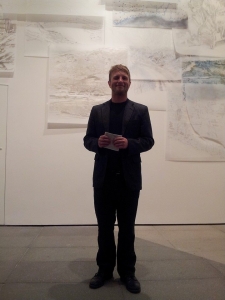
My current research examines the implementation process of smart growth in several medium-sized cities in California and Oregon through interviews, fieldwork, and secondary sources. The implementation process of nine smart growth projects is examined through different theoretical frameworks in sociology: the growth machine, the treadmill of production, entrepreneurial theory and ecological modernization.
My principal areas of specialization are economic, urban and environmental sociology, with a focus on the possibilities for an ecological restructuring of the built environment. I am broadly interested in technology and innovation-based approaches to urban environmental policy. Additionally, I have studied ethnic conflict in the African Sahel, specifically Sudan, Chad, and the Central African Republic.
The purpose of the work is to gain a greater understanding of how to align the technical systems needed to address environmental problems with democratic government and social equity.
Erik's dissertation compared "smart growth" planning and development in several cities in the states of California and Oregon. Initially, nine individual building projects were assess through interviews with developers, planners, architects, and social activists. The dissertation sought to discover why urban growth actors and organizations would adopt sustainability planning. During the course of the research, it became clear that many of these projects face substantial financial challenges due to the difficulty maintaining successful commercial and retail spaces. The research has important implications for sociological theory, urban planning and development, and environmental sustainability.
Erik received his PhD in Sociology from UCSB and is serving as a Lecturer in Sociology and Criminology at Penn State University.
